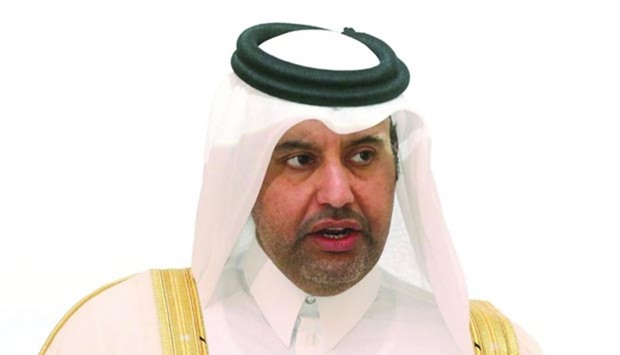Qatar hopes to increase the role of foreign direct investment (FDI) as "one of the main drivers of economic development" over the medium and long term, said HE the Minister of Economy and Commerce Sheikh Ahmed bin Jassim bin Mohamed al-Thani.
To this end, Qatar is focusing on “continued improvement” to its soft and hard infrastructure, Sheikh Ahmed said in an interview with the Oxford Business Group.
The promising projects that will take place in the special economic zones, and those under the new private-public partnership (PPP) framework, are likely to provide attractive opportunities for foreign investors, Sheikh Ahmed said.
“Moreover, the government’s commitment to continuing with its investment plans suggests that growth prospects for the Qatari economy may not be seriously affected by falling energy prices,” said Sheikh Ahmed, also the Vice-Chairperson of Qatar Investment Authority.
With the highest savings rate in the world (over 50% of GDP), Qatar, he said, has built up “significant” fiscal and external buffers to withstand lower oil prices and continue its diversification process.
Despite lower oil prices, Qatar’s real economic growth remains strong due to the expansion of the non-hydrocarbons sector. All this will motivate foreign investors, and may counter some of the repercussions of falling commodity prices and geopolitical concerns, Sheikh Ahmed said.
He said Qatar has taken considerable legislative measures designed to strengthen the foreign investment framework. These measures fall under two main pillars: the first focuses on widening the gate for foreign investors, while the second aims to simplify procedures and make it easier to establish a business.
Regarding the first pillar, Qatar has established an “attractive” legal framework that allows foreign investors full ownership of businesses in certain sectors and a competitive tax environment, which consists of a flat 10% corporate tax rate on locally sourced profits, no withholding tax, no personal income tax, no wealth tax and no value-added tax.
This legal and tax climate has positioned Qatar as the most competitive economy in the Middle East and in 14th place worldwide, according to the World Economic Forum’s “Global Competitiveness 2015-16” report.
Qatar is also ranked as the 20th most important financial centre in the world, as per the recently published Global Financial Centres Index.
In addition, Qatar believes that the development of special economic zones and a PPP framework, among other potential initiatives the MEC is currently working on, will enlarge the scope of foreign investors’ involvement in Qatar’s economy.
“Of equal importance is our commitment to strengthening the business environment and to simplifying procedures for activities such as setting up a business,” Sheikh Ahmed said in “The Report Qatar 2016” published by the Oxford Business Group.
To this end, a new commercial company law has been in place since June 2015. This is an early example of the procedural and legislative measures that the MEC will be considering in the coming years.
“We already have an accommodating approach to updating business legislatives and operations, taking into consideration the changing business environment across pioneer countries around the world,” the minister noted.
However, he said that updating the operational framework for setting up businesses is an ongoing process which is built upon Qatar’s frequent assessment of the domestic business environment and a clear diagnosis of the challenges faced by foreign and domestic investors.
“These efforts are executed within a harmonised framework, which includes all relevant governmental and regulatory bodies in the country,” Sheikh Ahmed said.

HE the Minister of Economy and Commerce Sheikh Ahmed bin Jassim bin Mohamed al-Thani.

